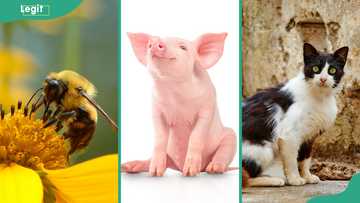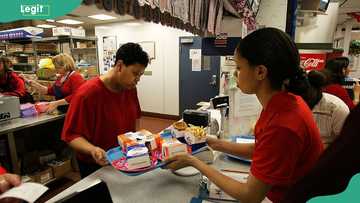10+ banned snacks in America and why they are banned
Ever wonder why certain snacks are banned in America but remain popular in other countries? From toxic additives to questionable ingredients, the FDA and USDA are at the forefront of food safety, regulating what makes it to our shelves. In this article, we uncover 10+ banned snacks and the shocking reasons behind their prohibition.
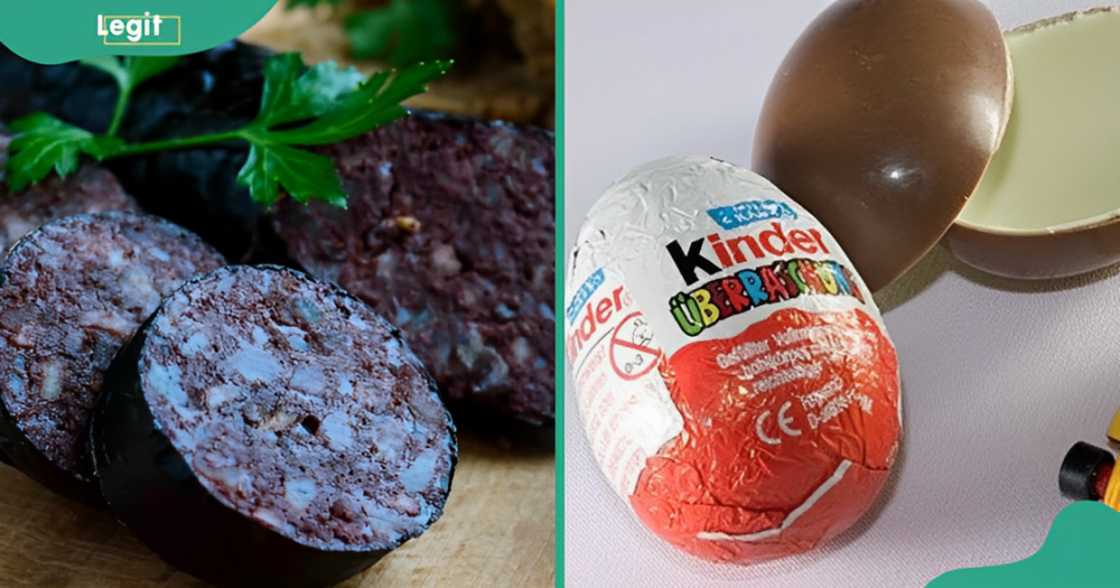
Source: Twitter
TABLE OF CONTENTS
- Banned snacks in America
- 1. Fresh black pudding
- 2. Camembert de Normandie
- 3. Cheez Doodle Doodle Heads
- 4. Kinder Eggs
- 5. Kinder Happy Hippo
- 6. Nestlé Magic Balls
- 7. Cadbury Chocolate
- 8. Flamin' Hot Cheetos
- 9. Four Loko
- 10. Lazy Cakes
- 11. Lay's Crunch Tators
- 12. Betty Crocker Fruit String Thing
- 13. Drinks with Brominated vegetable oil
- 14. Doritos 3D
- 15. Nestle's Butterfinger BB's
- What food in America is banned in other countries?
- Is black pudding illegal in the US?
- What candy is banned in the US?
We strive to provide factual and accurate information. As a result, we used data from the Food and Drug Administration (FDA) and other credible sources to create a list of recalled food items and the reasons why. While this list does not conclusively cover all the items on the snack ban list, it includes some of the most notable food advisories in the United States.
Banned snacks in America
The FDA, the United States Department of Agriculture (USDA), and state-specific laws play key roles in establishing food safety regulations. Banned food items in the USA are often restricted due to toxic ingredients, potential allergens, or links to chronic health problems.
Food regulation is designed to shield consumers from toxic ingredients and foodborne illnesses. Here is a comprehensive list of banned snacks in America and the reasons behind each recall or ban.
Snack | Reason for ban or discontinuation |
Fresh black pudding | Safety concerns over foodborne illnesses |
Camembert de Normandie | Safety concerns over foodborne illnesses |
Cheez Doodle Doodle Heads | High-fat content |
Kinder Eggs | Choking hazard |
Kinder Happy Hippo | Contamination |
Nestlé Magic Balls | Choking hazard |
Cadbury Chocolate | Contamination |
Flamin' Hot Cheetos | Extreme spice |
Four Loko | Alcohol intoxication |
Lazy Cakes | Overconsumption of melatonin |
Colour Changing Squeezit | Sugar and artificial dyes |
Betty Crocker Fruit String Thing | Sugar and artificial dyes |
Drinks with Brominated vegetable oil | Safety concerns over Bromine toxicity |
Doritos 3D | Nutritional concerns |
Nestle's Butterfinger BB's | High sugar content |
Sobe Lizard Fuel | High caffeine content. |
1. Fresh black pudding
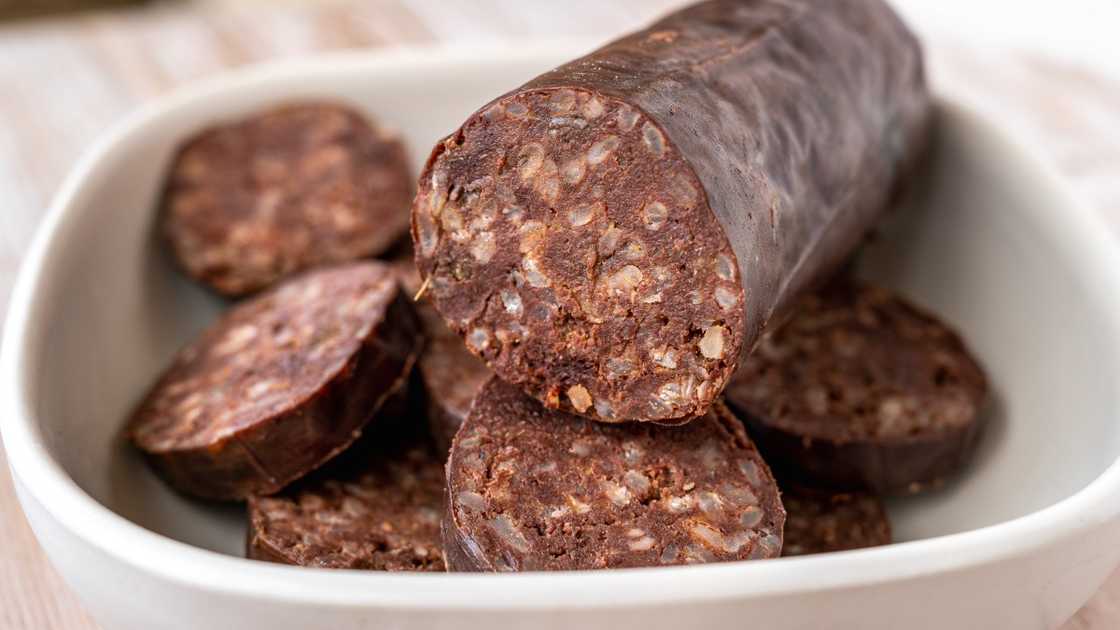
Source: Getty Images
- Origin: Scotland
- Brand name: Stornoway Black Pudding
- Other names: Blood sausage, black sausage
- Year of ban/discontinuation: 1997
Black pudding is one of the oldest forms of sausage. Although it is eaten in different variants around the world, the UK favourite, Stornoway Black Pudding, is illegal for sale in America and is also one of the banned foods in North America. The ban on the production of black pudding was imposed because it did not meet dietary laws and safety regulations for animal products.
2. Camembert de Normandie
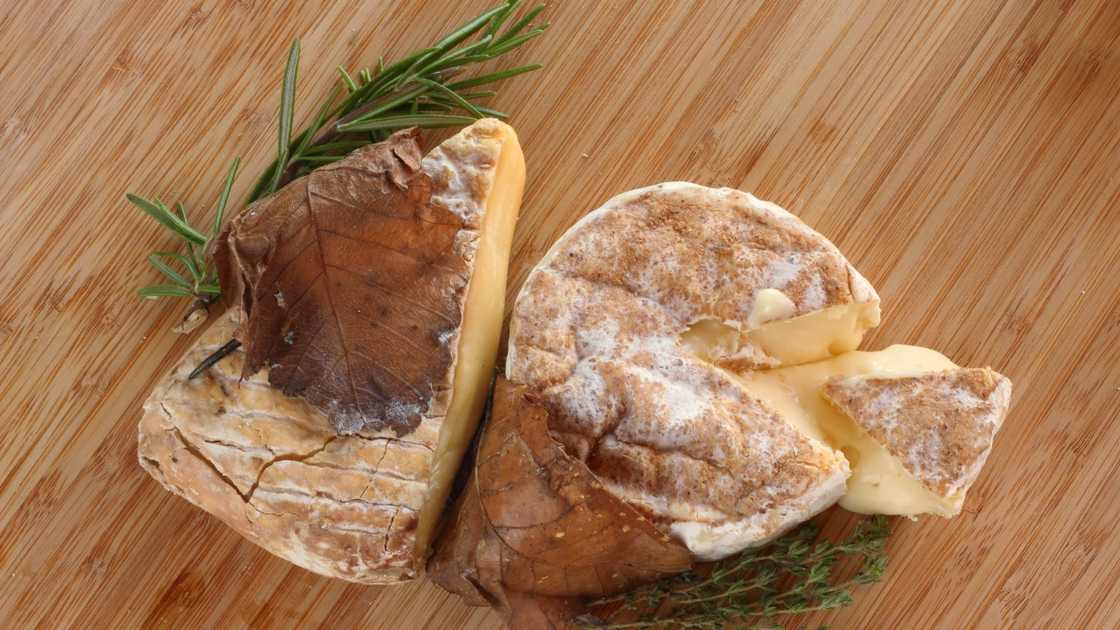
Source: Getty Images
- Origin: France, Corsica
- Other names: Casu marzu, Mont d'Or
- Year of ban/discontinuation: 2000
Casu marzu, a cheese with live maggots, is considered dangerous because of the presence of live larvae and the risk of Salmonella or E. coli contamination. Although the live maggots can survive stomach acid and pass through the intestines, they can cause serious health issues, such as vomiting, abdominal pain, diarrhoea and lesions in the intestines.
3. Cheez Doodle Doodle Heads
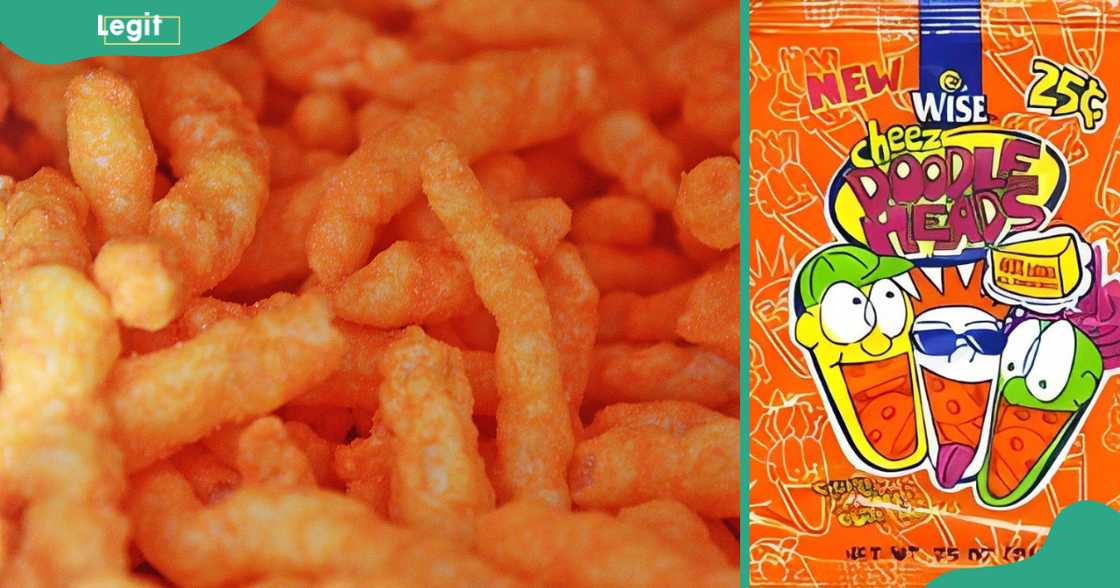
Source: UGC
- Origin: United States
- Brand name: Wise Foods (Cheez Doodles)
- Year of ban/discontinuation: 2000
Cheese puffs are a classic snack loved by many. Unlike the traditional elongated shape, Cheez Doodle Doodle Heads came in the shape of smiling heads.
However, they were discontinued due to their poor nutritional properties and potential for excessive consumption. Marketing the product heavily targeted children, which shifted consumer preferences towards it.
4. Kinder Eggs
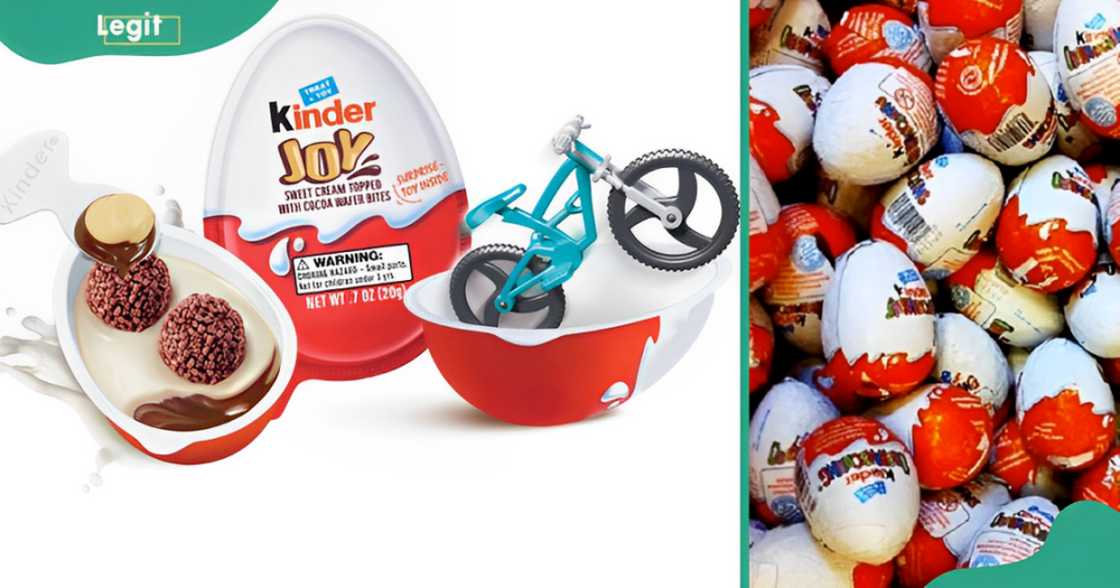
Source: Twitter
- Origin: Italy
- Brand name: Kinder
- Other names: Kinder Surprise, Kinder Joy
- Year of ban/discontinuation: 1938
Although Kinder Eggs are a beloved snack around the world, they are banned in America because they pose a choking hazard to children. In 1938, the U.S. Food and Drug Administration banned the products under the Federal Food, Drug, and Cosmetic Act as adulterated food.
5. Kinder Happy Hippo
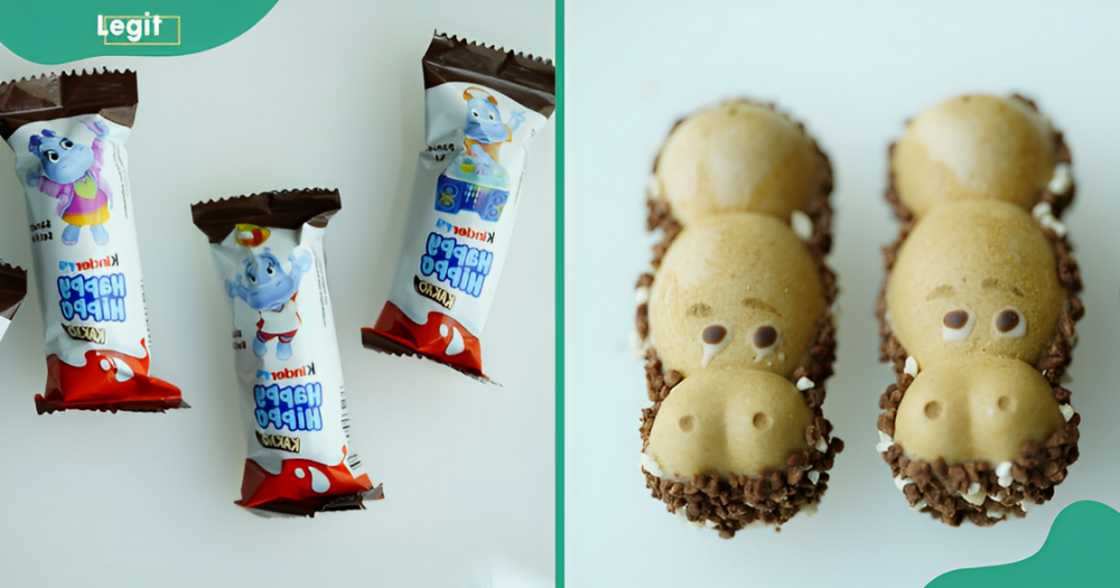
Source: Twitter
- Origin: Italy
- Brand name: Kinder
- Year of ban/discontinuation: 2020
Kinder Happy Hippos are chocolate-covered cream wafers in the shape of hippos. Like the Kinder Eggs, this milk and hazelnut-filled snack is banned because of its adulterated status. Like the egg, it contains a small toy that could potentially cause small children to choke.
6. Nestlé Magic Balls
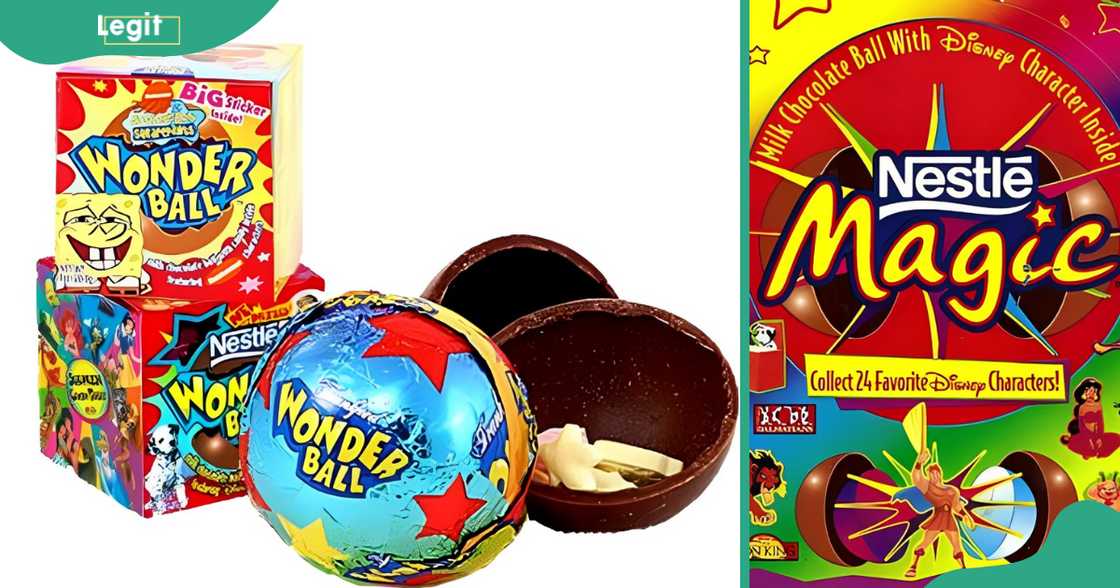
Source: Getty Images
- Brand name: Nestlé
- Other names: Magic Balls
- Year of ban/discontinuation: 2007
Nestlé Magic Balls's production contained Disney character figures inserted into a ball and encased in a chocolate ball. The ball is inserted into a plastic ball and itself inserted into a box. Similar to Kinder Eggs, the small, non-edible object posed a choking hazard, especially for children.
7. Cadbury Chocolate
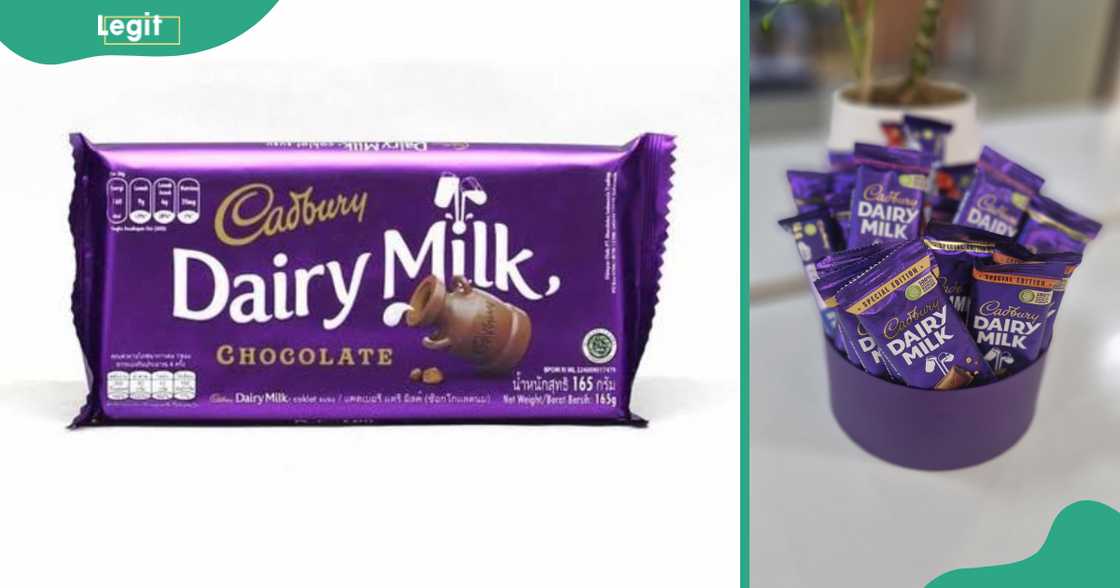
Source: Twitter
- Origin: United Kingdom
- Brand name: Cadbury
- Other names: Dairy Milk
- Year of ban/discontinuation: 2015
In 2015, Cadbury Chocolate lost the right to sell its Dairy Milk chocolate bars in the US market. Other Cadbury Chocolate products, such as Yorkie bars and Toffee Crisp, were also affected because their production and packaging competed with those of Hershey's Chocolates, an American company.
8. Flamin' Hot Cheetos
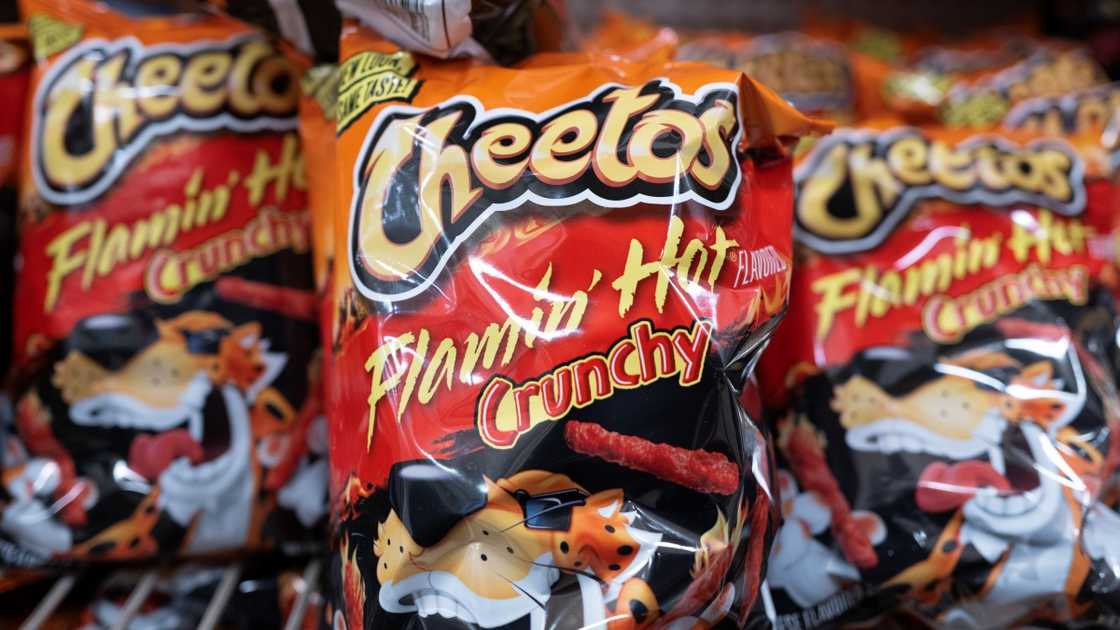
Source: Getty Images
- Origin: United States
- Brand name: Cheetos
- Year of ban/discontinuation: 2019
The California Food Safety Act banned the manufacture, distribution, and sale of foods containing Brominated vegetable oil, Potassium bromate, propylparaben, Red dye 3, and other synthetic dyes. The ban affected Flamin' Hot Cheetos, which contains Yellow 5 and Yellow 6.
According to Westword, public schools in California, New Mexico, and Illinois banned the snacks due to concerns about their fat, salt content, and germs, which could potentially cause digestive health issues in children.
9. Four Loko
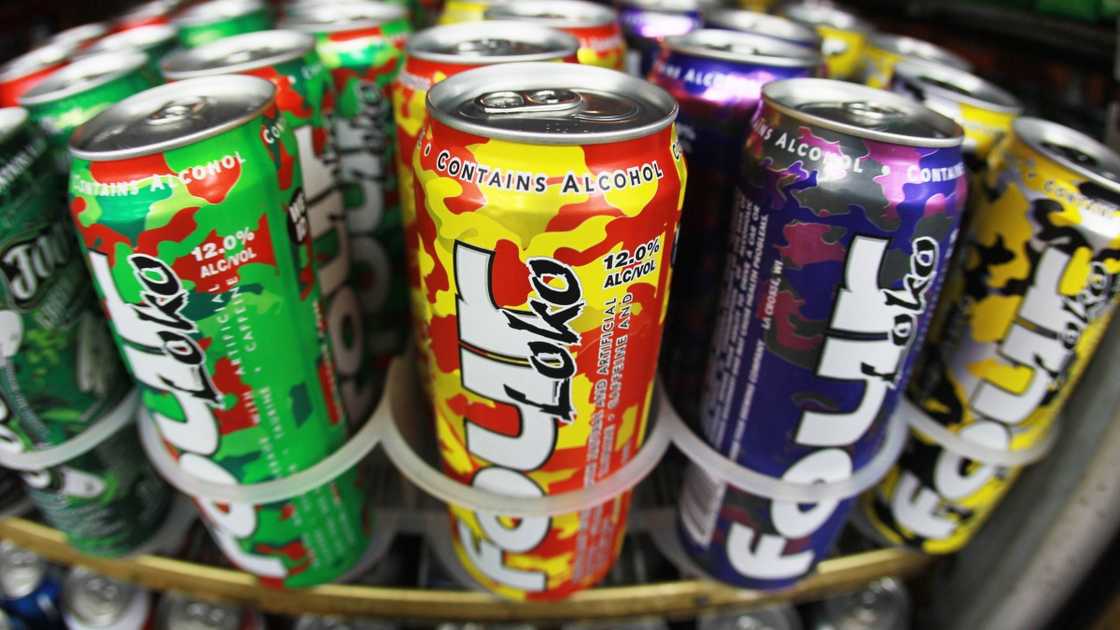
Source: Getty Images
- Origin: United States
- Brand name: Four Loko
- Year of ban/discontinuation: 2010
Four Loko is an energy drink that was banned in several states in 2010 after it was found to be a public health hazard. The drink originally contained caffeine, taurine, and other stimulants combined with high levels of alcohol, which the FDA deemed dangerous. The stimulant-alcohol combination can lead to increased intoxication and risky behaviours, leading to a nationwide crackdown.
10. Lazy Cakes
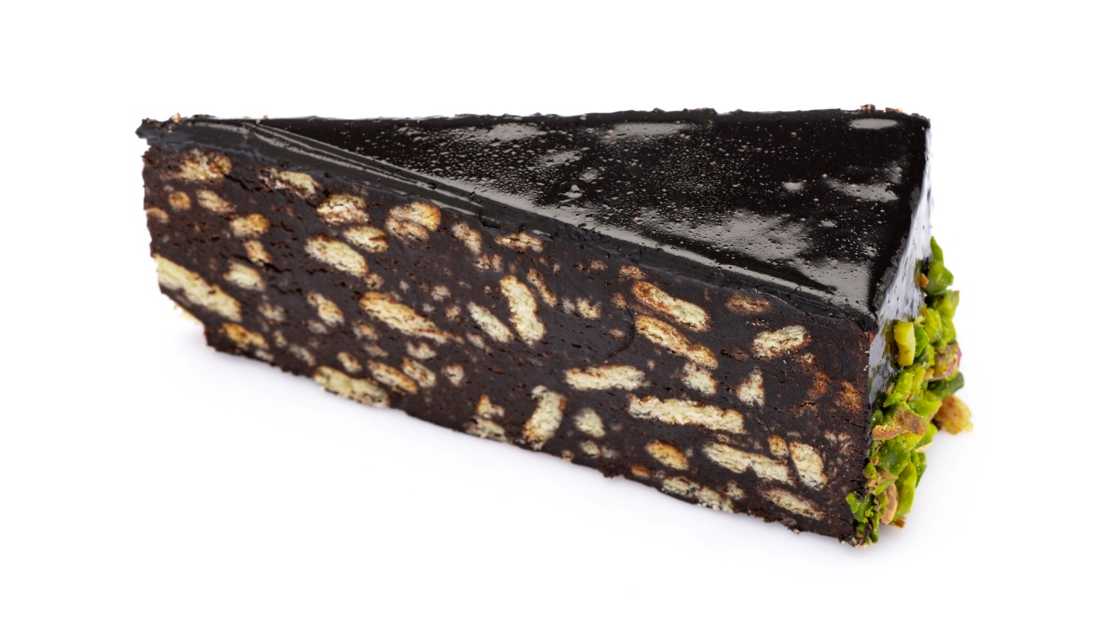
Source: Getty Images
- Origin: United States
- Brand name: Lazy Cakes
- Other names: N/A
- Year of ban/discontinuation.: 2011
Lazy cakes and brownies containing melatonin, a hormone that induces sleep, were banned after concerns that they were being marketed as a sleep aid for children. The FDA raised alarms about the potential for intake of toxic doses of melatonin, which could lead to serious side effects like drowsiness, dizziness, and allergic reactions, especially if consumed in large quantities.
11. Lay's Crunch Tators
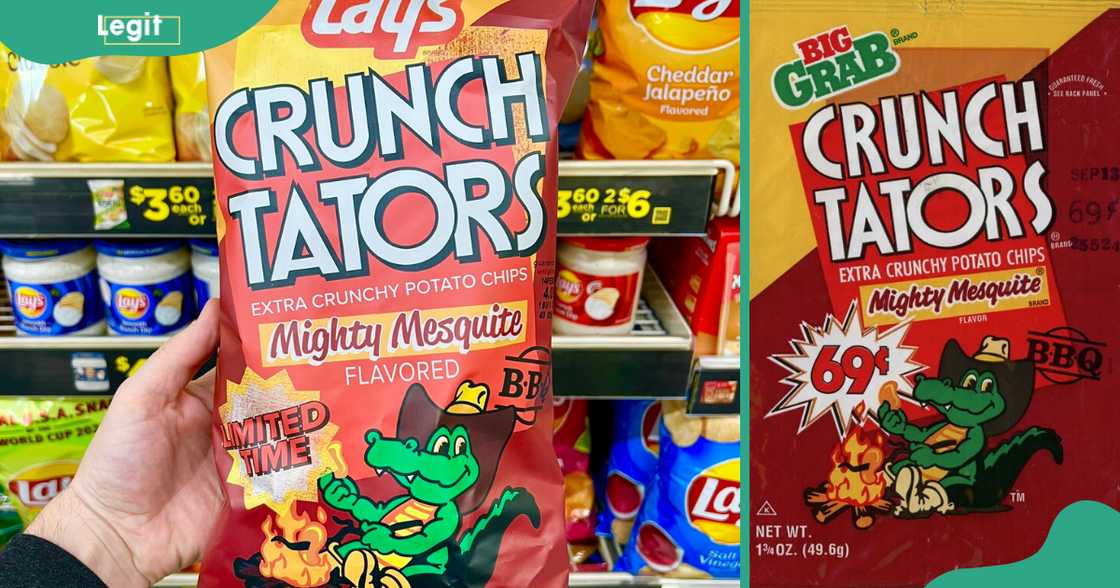
Source: Twitter
- Origin: United States
- Brand name: Lay's
- Other names: Crunch Tators
- Year of ban/discontinuation: 2000
Lay’s Crunch Tators were a popular snack in the U.S. in the 1990s but were discontinued in the early 2000s. There was no official "ban" per se, but the brand phased out the product due to shifting consumer preferences and an evolving snack market.
12. Betty Crocker Fruit String Thing
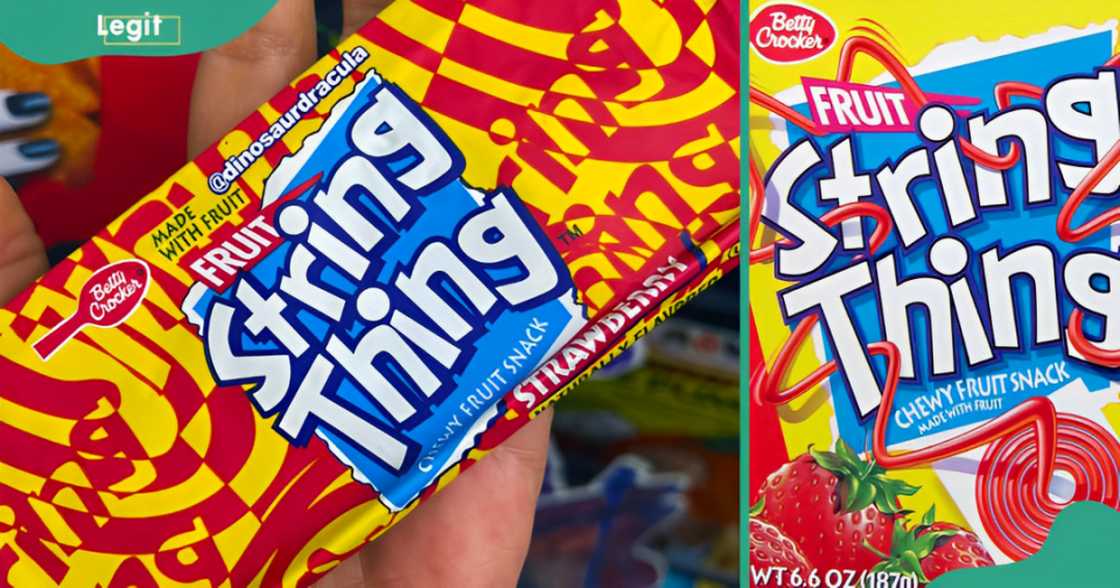
Source: Twitter
- Origin: United States
- Brand name: Betty Crocker
- Year of ban/discontinuation: 2000
Betty Crocker Fruit String Thing was a product aimed at children, resembling fruit-flavoured strings often marketed as a fun snack. However, the discontinued food that has become a collector's item was discontinued in the 2000s. Nutritional concerns, especially around the high levels of sugar and artificial colours in the product.
13. Drinks with Brominated vegetable oil
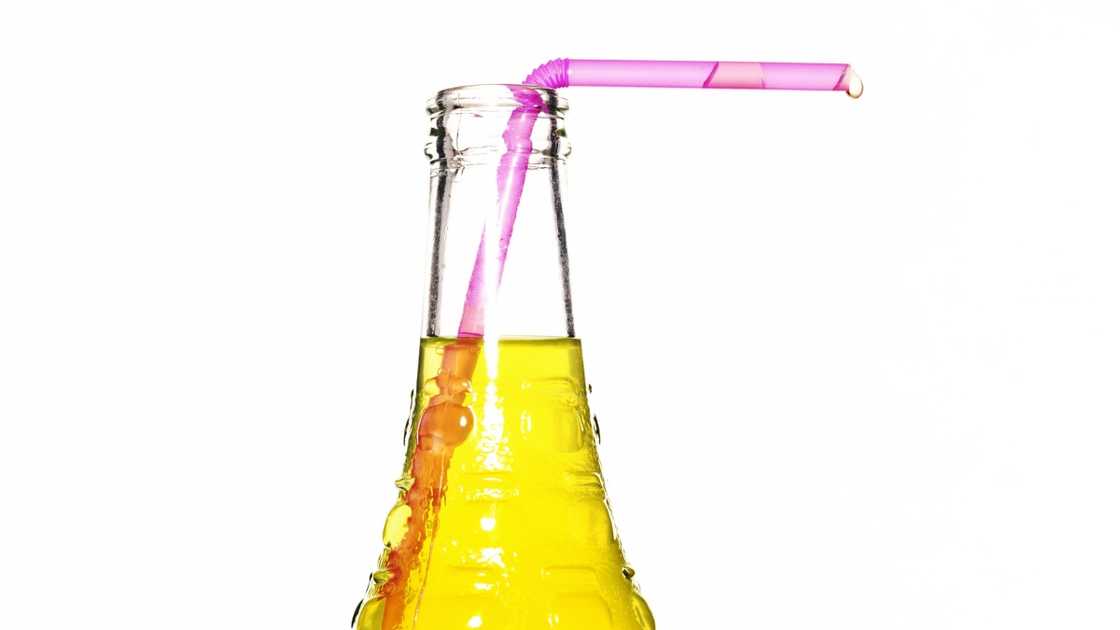
Source: Getty Images
- Origin: United States
- Brand name: Sodas such as Mountain Dew, Fanta, and Powerade.
- Other names: Brominated Vegetable Oil, BVO
- Year of ban/discontinuation: 2014, 2020
Brominated Vegetable Oil (BVO) was used in some citrus-flavoured sodas and energy drinks to stabilize emulsions and prevent the separation of flavourings and oils in beverages. However, concerns about BVO's potential health risks, especially its links to bromine toxicity, led to its gradual phase-out.
14. Doritos 3D
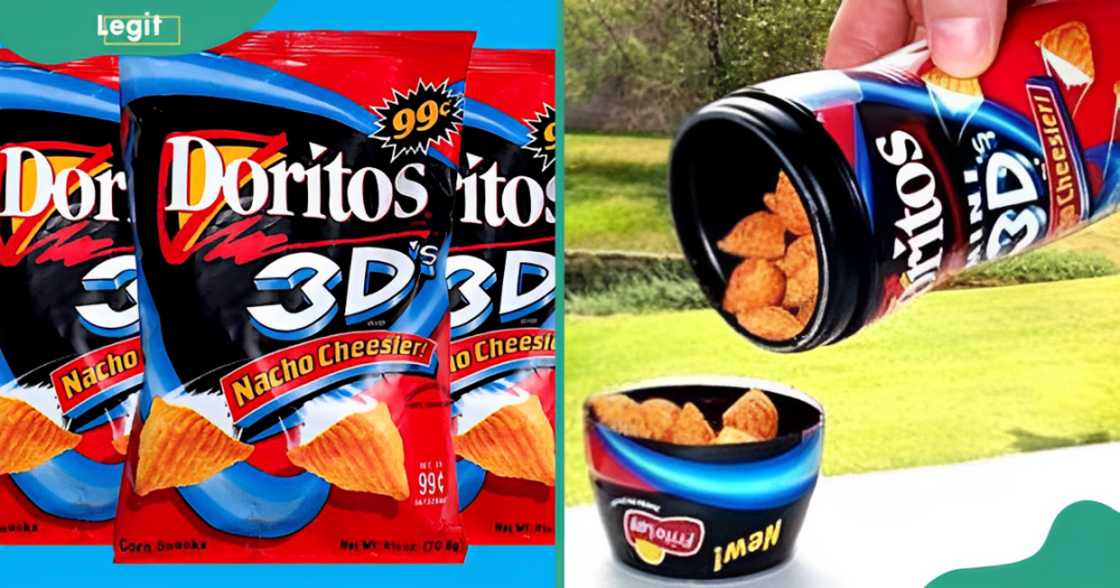
Source: Twitter
- Origin: United States
- Brand name: Doritos
- Other names: Doritos 3D Crunch
- Year of ban/discontinuation: 2004, 2020
Doritos 3D was discontinued in 2004, with overconsumption of processed snacks contributing to their removal. While there was no formal ban, the product's high-calorie, high-fat, and excessive sodium content contributed to health concerns, particularly related to obesity and cardiovascular health.
15. Nestle's Butterfinger BB's
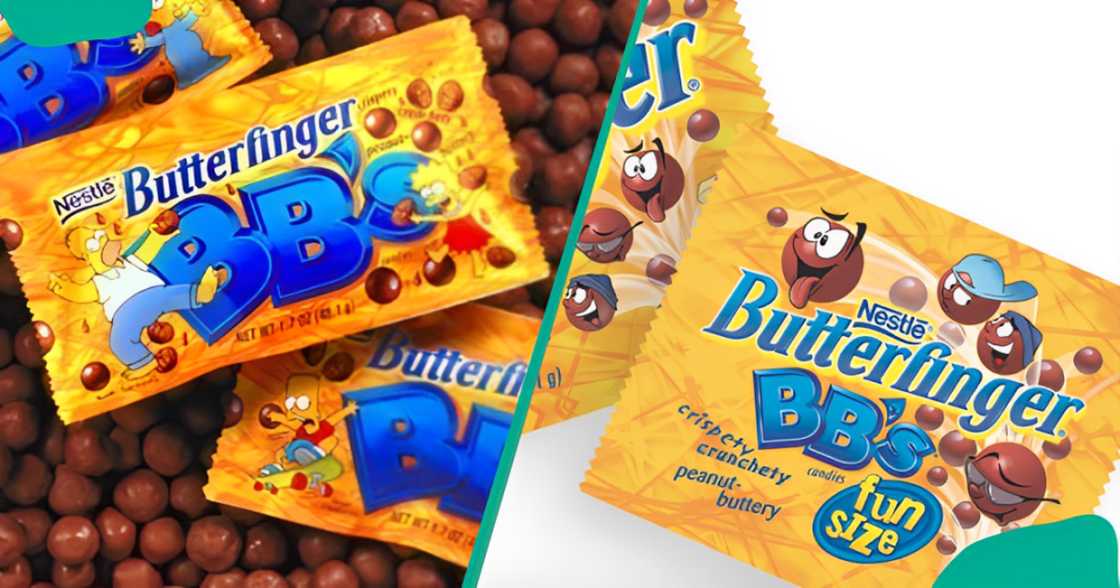
Source: Twitter
- Origin: United States
- Brand name: Nestlé
- Year of ban/discontinuation: 2006
Butterfinger BBs were small, round versions of the classic Butterfinger candy. They were discontinued in 2006 due to overconsumption of sugar and consumer dissatisfaction with the product's texture and packaging.
The candy's bite-sized nature led to excessive intake among consumers, especially children, raising concerns about the high sugar content in a single-serving snack.
What food in America is banned in other countries?
Several foods and ingredients commonly found in the U.S. are banned in other countries due to health concerns. These include artificial food dyes like Red 40 and Brominated Vegetable Oil (BVO).
Similarly, ingredients like rBGH used in dairy production and genetically modified crops are prohibited outside the US due to long-term health concerns and environmental effects.
Is black pudding illegal in the US?
Black pudding is a type of blood sausage made with pork blood, fat, and oats or barley. Due to the food safety regulations in the United States, its sale and production are considered illegal.
What candy is banned in the US?
Kinder Surprise Eggs are illegal because they contain a small toy inside that poses a choking hazard for children under three years old. Konjac jelly candies are also banned because of their choking risks.
Banned snacks in America may remain beloved by many consumers. However, regulatory standards on ingredients and processing methods remain unchanged. These bans reflect the U.S.'s stricter food safety standards and regulations around food additives and toy components.
Legit.ng recently published an article on Glyphosate, a widely used herbicide, and the restrictions on its use. Bans and restrictions on it have been attributed to their carcinogenic nature.
Regulations regarding the herbicide's use differ worldwide. Read on for details of each country that has banned it and those that have not.
Source: Legit.ng






